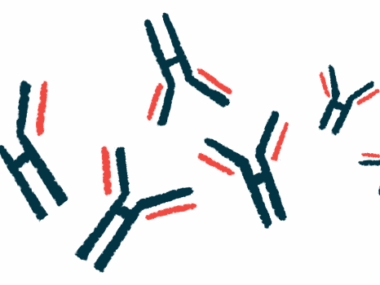Cytori Publishes 2-Year Follow-up Data in Scleroderma Trial of Cell Therapy in Hand Dysfunction
Written by |

Cytori Therapeutics recently published two-year clinical follow-up data of its SCLERADEC-I pilot trial showing that a single administration of the company’s Cytori Cell Therapy (ECCS-50) provided sustained clinical benefits for patients with hand dysfunction linked to scleroderma.
The study, “Long-term follow-up after autologous adipose-derived stromal vascular fraction injection into fingers in systemic sclerosis patients,” was published in the journal Current Research in Translational Medicine.
The SCLERADEC-I trial was an open-label study (NCT01813279) that assessed the safety of subcutaneous injection of autologous adipose-derived stromal vascular fraction in 12 patients with hand dysfunction associated with scleroderma.
The results showed that treatment with Cytori Cell Therapy was able to reduce disease severity, improve skin sclerosis, and improve hand motion and strength after six and 12 months, and that these clinical benefits were sustained at two years.
At two years follow-up, the therapy was found to offer sustained improvement in the Cochin Hand Function Score (CHFS), the study’s primary endpoint with an improvement of 62% observed over baseline. Improvements over baseline were also seen in the Scleroderma Health Assessment Questionnaire, with an improvement of 51.1%; an 88.3% improvement was seen in Raynaud’s Condition Score (Raynaud’s causes small arteries to narrow, restricting blood circulation); and a 33.1% improvement was observed in hand pain.
A decrease from baseline by 60% was noted in the number of digital ulcers. Mobility, strength, and fibrosis of the hand also showed improvement.
The researchers reported that none of the eight patients who had previously received Ventavis (iloprost) infusion required a new infusion with these agents in the two-year follow-up period.
“The long-term follow data from this small open label trial continues to suggest that a single administration is safe and may provide long-term benefits across multiple scleroderma symptoms,” Dr. Marc H. Hedrick, MD, Cytori’s president and CEO, said in a press release.
“Scleroderma is a very complex disease but shares common features with other connective tissue disorders that may be attractive future targets for the therapy,” he said.
Cytori Cell Therapy comprises a heterogeneous population of specialized adipose-derived regenerative cells, including stem, lymphatic, immune, and mesenchymal and endothelial progenitor cells that can play a role in the healing process of patients with scleroderma-associated hand dysfunction and orthopedic disorders, among other diseases.





